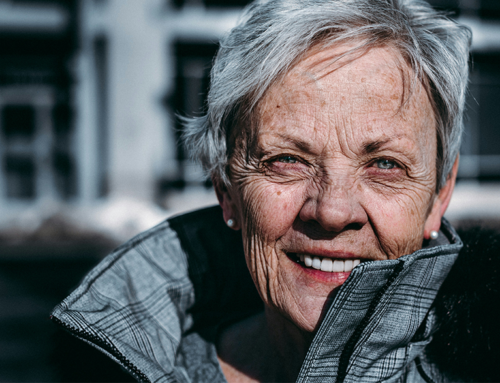Deep diving on self-compassion…..
Our online learning community, Learn With Sue, recently caught up with Dr Denise Quinlan who specialises in the science of wellbeing.
Throughout a flourishing career, her research has been published in International academic journals and several edited volumes. Denise shared her insights in an equally candid and considered chat, touching on an array of concepts including psychological safety, ruthless prioritisation and radical acceptance.
When asked why she is in the wellbeing space, Denise responded, “the deep, deep, truth is that you teach what you need to learn.” As a self-confessed ‘recovering pessimist’, it is perhaps Denise’s humility that allows her to share views on wellbeing psychology in such a relatable way.
 Wellbeing practices go hand in hand with resilience, and Denise introduced us to a great metaphor for this partnership. Imagine we are all divers out at sea. Some people were born with buoyancy vests, you can push them under, and they seem to float back up to the surface effortlessly. Then there are most others, who are born with weight belts around their waists which can cause them to sink below the surface. Wellbeing and resilience are like having tools which act like a huge pair of flippers. With flippers you can kick to the surface and keep your head above water more easily.
Wellbeing practices go hand in hand with resilience, and Denise introduced us to a great metaphor for this partnership. Imagine we are all divers out at sea. Some people were born with buoyancy vests, you can push them under, and they seem to float back up to the surface effortlessly. Then there are most others, who are born with weight belts around their waists which can cause them to sink below the surface. Wellbeing and resilience are like having tools which act like a huge pair of flippers. With flippers you can kick to the surface and keep your head above water more easily.
Like all of us Denise has had to actively develop ways to look after her wellbeing, to cultivate her own flippers. She described her definition of wellbeing as ‘when the resources we have are greater than the challenges we face.’ She names her go-to tools as meditation, being in nature and exercise, yet she also admits to sometimes ‘falling off her cushion’ and feeling out of sync with these daily habits. Acknowledging this non-perfect aspect of being human led us to the topic of self-compassion. Self-compassion is vital for our wellbeing – at home, and in the workplace.
“Self-compassion is the antidote to perfectionism.” – Denise Quinlan –
Psychological safety
Denise believes that if we can work on the area of psychological safety in organisations, we could transform the world of work. Psychological safety requires a healthy dose of compassion.
Psychological safety is being able to show up as yourself without the fear of negative consequences. It is when we feel respected and safe to share our thoughts and behave in line with our personal values. In this environment we feel seen and accepted, whether we agree or disagree with others’ opinions and vice versa. There is a mutual sense of compassion between the group members as well as for oneself.
In the context of the current Covid-19 pandemic, we asked Denise what we can learn from positive psychology to help us cope in these adverse times. She suggested that the people coping well are those who are more comfortable with uncertainty. Currently there are a lot of things that are not in our control and that can lead to insecurity and overwhelm.
“People have had a lot added to their plate lately and not enough taken away. The recipe for overwhelm and burnout is when everything seems urgent, and everything seems important.”
Denise suggests, if you find yourself in this situation, you can ask yourself two questions:
- Where and what are you taking refuge in? (e.g. Social media, food, exercise)
- Is it helping or harming you in the pursuit of what it is you need?
These are brilliant questions because they assume that you know inherently what you need. They offer autonomy and agency and put people back in the driver’s seat. They lead to redefining what is most important and how to give precedence to it.
Ruthless Prioritisation
Another of Denise’s tips for practicing self-compassion and wellbeing is ruthless prioritisation. We need to accept that we can’t do everything all at once and focus on tasks that you a) value as important and b) that you can control.

Radical Self-Acceptance
Perfectionism is a pervasive issue in our culture and one that can make it difficult to be kind to yourself. At the heart of the issue is the need for radical self-acceptance. This is the practice of embracing yourself as you are and doing so in a way that is self-compassionate and without judgment.
“Perfectionism (and the beating that goes with it) is a self-indulgence that we can’t afford”
Self-compassion is not a standalone phenomenon, it has profound effects on your physical and psychological health.
A series of studies have shown that self-compassionate people:
- Learn more from failure
- Cope better with challenge
- Are more likely to persevere after a setback
- Are more likely to take responsibility for their actions
- Are less likely to hide their mistakes or blame others
- Enjoy better physical health
Closing Thoughts
It was so energising to hear from Denise and a great reminder of the power of self-compassion to improve emotional wellbeing. We all have the skills for self-compassion and acceptance, put simply – we just need to give ourselves the same kindness and care we’d give to a good friend.
At a time when we are all in the sea of uncertainty, we can put on our wellbeing and resilience flippers and get kicking.
The Langley Group Institute partners with Denise and the New Zealand Institute for Wellbeing & Resilience as part of the 10653NAT Diploma of Positive Psychology and Wellbeing in Christchurch. Learn more about this life changing opportunity here!
To purchase ‘The Educators Guide to Whole-school Wellbeing’, by Denise Quinlan head to our shop
To discuss bringing wellbeing programmes to your organisation please get in touch, we would love to hear from you.
Learn with Sue is an online membership like no other. Interact with the brightest minds in positive psychology who have dedicated years to identify the secrets of “what makes a good life” both personally and professionally. Access a library of resources, tools, and tips to help you implement the science to boost your wellbeing. For more information about a Learn with Sue membership visit Learn with Sue






